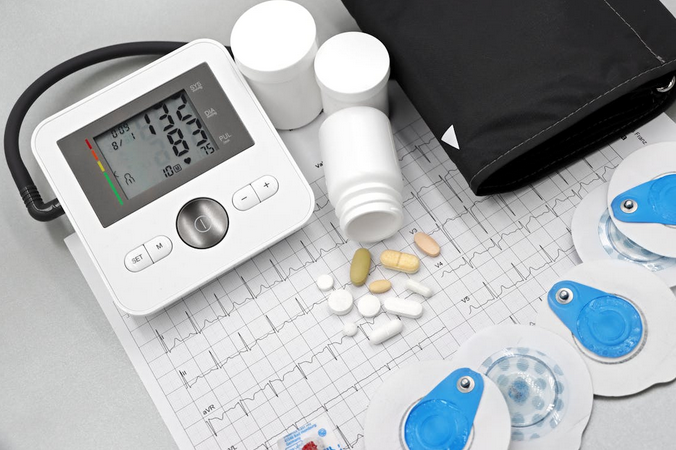High blood pressure, or hypertension, is often called the “silent killer” for a reason—it can quietly damage your heart, blood vessels, and organs without noticeable symptoms. While medications are commonly prescribed to manage it, lifestyle changes can be just as powerful, especially in the early stages or for those looking to avoid long-term prescriptions. By adopting healthy daily habits, you can lower your blood pressure naturally and sustain those improvements over time, all without relying solely on pills.
Adopt a Heart-Healthy Diet

One of the most effective ways to manage high blood pressure is through your diet. The DASH (Dietary Approaches to Stop Hypertension) diet has been widely recommended for its proven results. It emphasizes fruits, vegetables, whole grains, lean proteins, and low-fat dairy while reducing sodium, sugar, and saturated fats. Potassium-rich foods like bananas, spinach, and sweet potatoes help balance sodium levels in the body and support heart health. Limiting processed and salty foods can lead to a noticeable drop in blood pressure over just a few weeks.
Stay Active With Regular Exercise
Physical activity strengthens the heart, allowing it to pump more efficiently and reducing the pressure on your arteries. Aim for at least 30 minutes of moderate activity most days of the week—brisk walking, cycling, swimming, or even dancing are all great choices. Consistency matters more than intensity, and building movement into your routine can deliver lasting blood pressure benefits. Exercise also helps reduce stress and supports healthy weight management, both of which contribute to lower readings.
Manage Stress for Better Control

Chronic stress can keep your blood pressure elevated, especially when it’s paired with unhealthy coping mechanisms like smoking, drinking, or overeating. Finding healthy ways to manage stress—through meditation, deep breathing, journaling, or spending time in nature—can make a significant impact. Even short daily practices of mindfulness or gratitude can lower stress hormones and support a calmer, more balanced cardiovascular system.
Reduce Alcohol and Quit Smoking
Alcohol and tobacco use are two lifestyle factors strongly linked to elevated blood pressure. While moderate alcohol consumption might be safe for some, excessive drinking raises blood pressure and can interfere with medications. Quitting smoking, on the other hand, has almost immediate benefits—within 20 minutes of your last cigarette, your heart rate and blood pressure begin to drop. Long-term, you’ll lower your risk of heart disease and stroke dramatically.
Get Quality Sleep Each Night

Poor sleep doesn’t just leave you tired—it can also contribute to hypertension. Aim for seven to eight hours of restful sleep per night. Establish a calming bedtime routine, avoid screens an hour before bed, and try to stick to a consistent sleep schedule. If you snore loudly or feel tired even after a full night’s rest, consider getting evaluated for sleep apnea, which is a common yet underdiagnosed contributor to high blood pressure.
Managing high blood pressure without medication is not only possible—it’s often the most sustainable and empowering approach. By making smart choices around diet, exercise, stress, sleep, and other daily habits, you can take meaningful control of your health. While medication may still be necessary for some, these natural strategies can significantly reduce your risk and help you live a longer, healthier life. Always consult with your healthcare provider before making major changes, especially if you’re already on a treatment plan.







